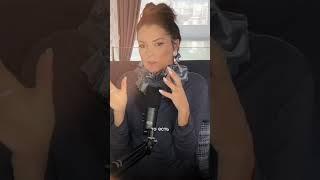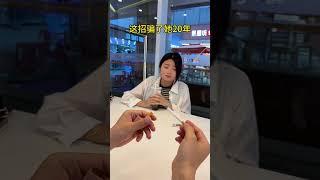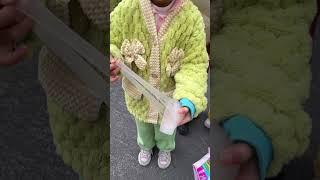
9 Little Known Watercolor SECRETS to Level Up your Results!
Комментарии:

I learn something from every video you post. I didn’t know most yellows are somewhat opaque. Thanks. 🐈⬛
Ответить
Hi, Michelle. All excellent tips and tricks. Using candlewax instead of masking fluid was new to me. Thank you. 🐈⬛🐈🐈⬛
Ответить
That’s me “ I can mix that myself” ask my friend,Alicia 😂
Ответить
Another great video, Michele. I ALWAYS learn something from them. It's good to learn the science too, thank you 😊
Ответить
Brilliant video thank you so much
Ответить
Very interesting! I love your show really good 👍☯️☮️💖💖💖💖
Ответить
I do shibori dyeing, and red pigments are well known for running, bleeding, and fading. The pigment particles in reds are smaller and so they move more easily. Many classic shibori resist techniques work much better with indigo than they do with madder. Red dyes evade the resists more easily and run into areas you'd like to keep them out of.
Ответить
You start this off with a comparison between hot and cold pressed and I'm literally doing a flower painting, watching this, using hot press paper lol
Ответить
Excellent tips for watercolor and reminders about certain techniques. I totally agree that the candle wax it much better and easier to use. many thanks!
Ответить
The candle wax is the winner in my opinion. I’m still learning so I don’t have any secrets unless you need tips on over mixing and making a nice mud color pretty good at that. All these secrets are amazing.
Ответить
thanks so much for the advice!
Ответить
That was really helpful! I especially like the tip about very watery painting. I often get into trouble when painting very pale, watery colours and so will brush slower and with more care next time. It's physics really isn't it - not my strong point so that was very good to be told.
Thank you Michele, you're fab!
Love, Mel in Devon 🍰🌻
P.s. The comments about hot press paper are so on-point. I don't like it at all for watercolour painting.

New learning on using the black line to distinguish opaque and transparent colors. Thanks
Ответить
Also will try the candle wax instead of masking fluid to retain white of the paper. Good alternative
Ответить
I have used masking fluid to create water highlights but I apply it with a dry brush to achieve a more sporadic appearance. It actually gives you a similar look to the wax resist!
Ответить
Interesting video! Thank you ❤
Ответить
The candle substitute for masking fluid is genius! Comparing both is like chalk and cheese! Natural methods give the best results! :) Thank you for sharing!
Ответить
Thanks for the great tip about using biro in line and wash work. I do experiment with biros, mainly in zentangle art, but never thought about line and wash. The sound you hear is the penny dropping, followed closely by my jaw...😃Thanks again for this great tip. I always learn something from your tips and tricks videos. Definitely cat approved.
Ответить
Thank you for sharing your secrets Michele. I do prefer your candle wax for water ... masking fluid is so tricky. Your secret about the pigment with the red oxides was fascinating and very helpful.. I had a similar experience with a burnt sienna. Oh and a great tip for testing opacity with the black line.
Ответить
So many great tips Michele. Thx as always. 🥰💕🐶💕🥰
Ответить
Thank you SO much for that clarity on cp vs hp paper! I’ve had hp paper recommended, especially by some portrait artists and I just have consistently found it a real struggle to get the paint to perform the way I would like. It’s actually taken the joy out of the performance of the watercolors for me!
Ответить
Another great informative video! I really like the tips you provide. I've noticed the bleeding with reds also, but never put two and two together to plan around that effect. Also liked advice on yellows trapping pencils and laying opaques. Loved your cat detective picture.
Ответить
I am an experienced watercolor artist and you made me realized a mistake I made today.. putting layers onto opaque napels yellow. I lost all the freshness.
. Thanks for the good tip making me aware.

Excellent advise. I hate masking fluid, but it does give you thin lines. Thanks
Ответить
Thank you for the information. I didn't know about the ball point pen. 😊
Ответить
Thank you 🙏
Ответить
I was familiar with most of these tips, but reminders are always necessary! The ones totally new to me were the red oxide being so different 😮 and I’d never thought about using a biro. Thanks Michele. Happy Saturday 😊
Ответить
Very informative! Thanks
Ответить
Re papers: Colors look brighter on hot press than cold press. That's why many artists who do floral portraits use hot press paper, especially for yellows and very delicate colors. The texture of cold press paper actually leaves tiny shadows that make the colors look duller. I do use mostly cold press (landscapes) because I love the way pigment moves on it. On anther subject, certain pigments such as PR101 and Pbr7 are known to have very different "looks" depending on how they are processed. How finely ground, how much they are heated etc.
Ответить
Love these videos. This was pure gold. Thanks. I learned so much!
Ответить
The red bleeding more makes sense because many red colors are smaller pigment size like Quinacridones then the blue like cobalts which are us larger, pigments size size and I find the smaller pigments definitely drift a lot more.
Ответить
Very useful, thank you so much, Michele!
Ответить
Wonderful information!Thank you!
Ответить
Thank you Michelle! I didn't know about the yellow paint! Do you have any suggestions for a transparent yellow to use? Great informative video!
Ответить
I agree. Thanks
Ответить
useful advice..thankyou
Ответить
I loved that painrs with the same number are NOT the same. And I appreciate the explanation about 'm' for micron and optical color facts
Ответить
Thank you Michele. Not everything was new to me but I still learned a lot. You are one of the few teachers who explains all those little details that are so important and sometimes make things not work.
Ответить
Oh thank you for explaining how 2 paints with the exact same pigment number can actually look different. I just recently looked up all the pigment numbers for my van Gogh pan set and saw that there were a few like that. I remember phthalo green and "veridian" in particular. I was wondering why they looked different when they only had the one pigment in each.
Ответить
Very good tips, a number I'll definitely use. Thank you 😊
Ответить
Can I use a white crayon instead of a candle?
Ответить
I absolutely detest masking fluid! It doesn't matter how much I try and soften the hard edges after it's been removed, the edges just never look natural. I avoid using it as much as I possibly can, and dread it if I have no other choice. Especially with flowers, it's dreadful stuff!
Ответить
Can you do a video on brush holding? I've seen some hold the brush closer to the ferrul and others at the end. I'm never sure what benefits the stroke more
Ответить
I'm so thankful for you! You're adorable and you share amazing videos! Thank you!
Ответить
Love this I learned so much. Thanks!
Ответить
Thanks so much for this video - it was so helpful! All your videos are very helpful and I always learn a lot from you. Very practical, quick, not at all boring, and they all really work ! 😊👍🏽🙏🏽🌹👏🏽
Ответить
I love your candle wax tip! Definitely going to try that next time I need a dry-brush effect on a tricky spot in my paintings! 🙌🏻👏🏻
Ответить
really helpful, thank you! especially where you talk about watery paint - I've noticed in a couple other videos you said not to worry so much about the amount of water used, but I think there are considerations like this one (that even if you needed to lighten the pigment way down with lots of water, you can still minimize how wet you let your brush get) - I'd love to see more about this topic (ok, as I'm writing this I'm realizing that maybe my questions are less about how much water to mix with the pigment and more about how wet your brush should be? For example, if you don't let your brush get wet enough, does that lead to having your otherwise beautifully saturated/bright paints end up looking too dull on the paper? or sometimes i can see little white specs of paper showing through - even on arches/100% cotton - I think maybe that's because my brush wasn't wet enough? anyway - lots of questions, if you have other videos on that, please let me know, I'd love to see them). Also interesting about the challenges in layering colors that are more opaque, I hadn't thought about that before. Thank you.
Ответить



![[free for profit] ambient + experimental type beat - dreamcore [free for profit] ambient + experimental type beat - dreamcore](https://hdtube.cc/img/upload/OFBsYVh3eldDQjM.jpg)





















